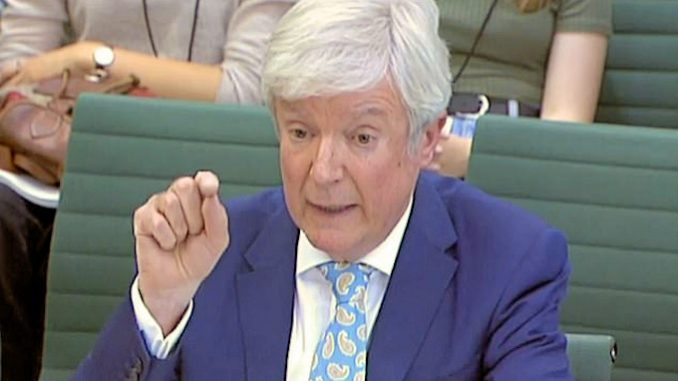
The BBC could switch away from the licence fee to a Netflix-style voluntary subscription model, the director-general acknowledged yesterday.
The compulsory licence fee system is guaranteed until 2027, after which the broadcaster will have to negotiate a new funding arrangement with the government. Senior industry figures have called for the BBC to be transformed into an opt-in platform, meaning that viewers would be charged only if they watched its programmes.
“You could decide the BBC is a subscription service,” Lord Hall of Birkenhead told MPs. “It would be very, very different to the sort of BBC you have now, because you would be giving subscribers what they want, not the breadth of the population.” He added: “I would argue that’s the wrong model for supporting the BBC.”
The director-general admitted that the BBC should learn from Netflix in making it as easy as possible for the public to pay, saying that he would like to introduce a weekly plan.
In a heated appearance before the digital, culture, media and sport select committee, Lord Hall was criticised for stripping free TV licences from up to 3.75 million viewers over 75.
The BBC was forced to accept responsibility for the benefit from the government during funding negotiations in 2015, but says the £750 million annual cost is unaffordable. Means testing will reduce the bill to £250 million by limiting free licences to those claiming pension credit from 2020.
Lord Hall told the committee yesterday that the BBC took on the policy unwillingly and had “no choice” but to end the concession.
“This was coming to us whether we wanted it or not,” he said. “This was a new Conservative government with a majority, coming in fresh with the success of that election — this was coming our way, come what may.”
He said that the corporation “absolutely did not” sell over-75s “down the river”, and had been “completely consistent about the reforms we would need to make to live with the budget means we were set”.
Damian Collins, the committee’s Conservative chairman, said that BBC revenues were boosted by other elements of the 2015 deal, such as a guarantee that the cost of a licence would rise with inflation.
The BBC is recruiting a team to pay support visits to over-75s who will now need to buy a licence. Clare Sumner, the corporation’s director of policy, said that a new TV licensing team — separate from regular enforcers — would make personal visits to those viewers affected by the change.
“We are actually recruiting a specific group of people who will pay support visits to this group with the intention of helping them understand what the system is and how to apply,” she said. “Now that will be a different cohort of people to I think what’s called ‘enquiry officers’ who are the ones who kind of enforce the licence fee.”